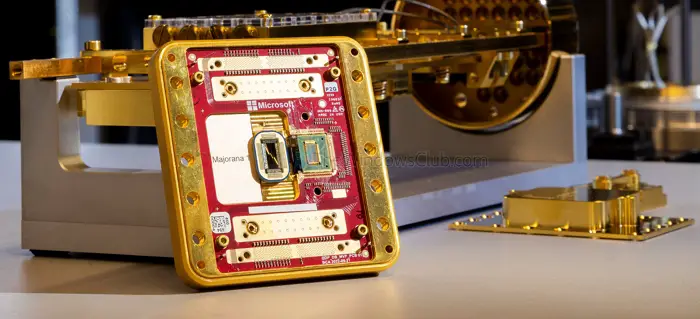Microsoft has announced a milestone in quantum computing with Majorana 1, the world’s first quantum chip powered by its new Topological Core architecture. The company claims this breakthrough will enable quantum computers to solve industrial-scale problems in years rather than decades.
Microsoft can achieve this by leveraging the first “topoconductor”—a novel material that can control Majorana particles—Microsoft aims to create more reliable and scalable qubits, the foundation of quantum computing.

Microsoft’s Majorana 1 is a breakthrough in Quantum Computing
The topoconductor, or topological superconductor, is a special category of material that can create an entirely new state of matter – not a solid, liquid or gas but a topological state. This is harnessed to produce a more stable qubit that is fast, small and can be digitally controlled, without the tradeoffs required by current alternatives.
That said if you are wondering why it’s so important, it’s because this will move beyond the binary system’s 1 and 0 and make 0 and 1 available together. It has been seen as key to solving complex problems in healthcare, materials science, and climate change.
Microsoft’s Topological Core architecture aims to fit a million qubits on a chip small enough to hold—an essential threshold for tackling real-world challenges.
We took a step back and said ‘OK, let’s invent the transistor for the quantum age. What properties does it need to have?’” said Chetan Nayak, Microsoft technical fellow. “And that’s really how we got here – it’s the particular combination, the quality and the important details in our new materials stack that have enabled a new kind of qubit and ultimately our entire architecture.
Skepticism and Industry Competition
Microsoft’s bet on Majorana-based qubits was met with skepticism since these exotic particles do not naturally exist and must be created under specific conditions. While their existence is now peer-reviewed in Nature, large-scale deployment remains years away.
For now, Majorana 1 marks progress toward large-scale quantum computing, but whether it will dominate or be outpaced by alternative approaches remains to be seen.